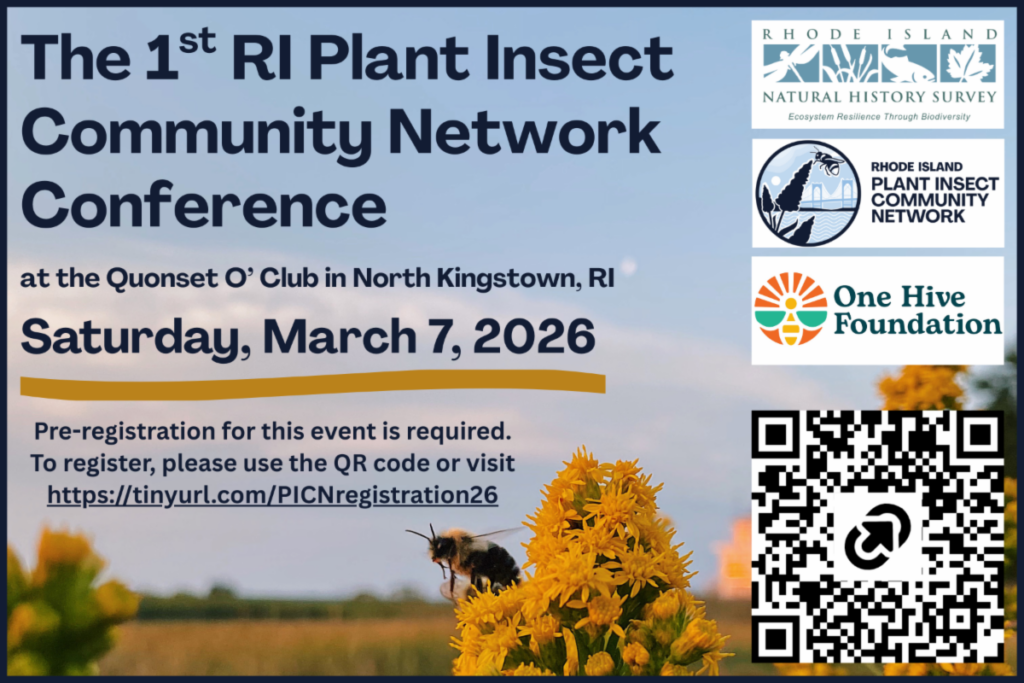March 7, 2026
Registration 9 am, First paper 10 am, Finish 5:20 pm, Networking “cocktail hour” 5:20 – 7 pm.
Quonset O Club, North Kingstown, RI

Most of the biodiversity in Rhode Island is contained in a network of plants, insects, and small vertebrates such as birds and small mammals. Successful conservation of native plants, pollinators, and birds ultimately comes back to understanding the networks that exist among them.
This conference is sponsored by the Plant Insect Community Network, a program of the Natural History Survey that connects the efforts of organizations, programs, and projects that work on pollinators or “pollinator adjacent” topics in Rhode Island to leverage strengths, identify gaps, and raise the profile of the whole community.
The program includes a full day of papers and socializing, plus organizational displays, posters, and other activities.
Registration is open. Register now.
Keynote speaker: Avalon Owens, Rowland Institute at Harvard University, “Floodlights and Fireflies: Environmental Sustainability Starts in Your Front Yard.” Learn more about Avalon Owens.
In Rhode Island, there’s a whole community of programs working on the plant-insect network: studying pollinators, promoting native plants, building sustainable agriculture, and educating people. The Plant Insect Community Network is a program that connects these efforts together to leverage strengths, identify gaps, and raise the profile of the whole community. The Network is made up of organizations, programs, and projects that work on pollinators or “pollinator adjacent” topics in Rhode Island. It helps existing initiatives rather than competing with them. The Plant Insect Community Network is a program of the Rhode Island Natural History Survey created in 2024 with a generous grant from the One Hive Foundation.
Natural History Survey conferences are widely regarded for assembling a broad spectrum of people and as an excellent venue for researchers and organizations to showcase what they do in a collegial atmosphere. The conference has also been a good career-building opportunity for students from high school to graduate levels.